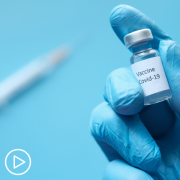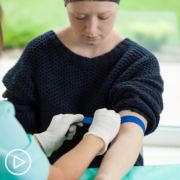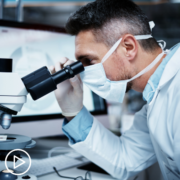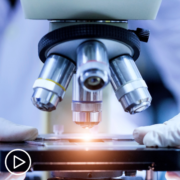Is the COVID Vaccine Effective for CLL Patients?
Is the COVID Vaccine Effective for CLL Patients? from Patient Empowerment Network on Vimeo.
Is the COVID vaccine effective for chronic lymphocytic leukemia (CLL) patients? Dr. Paul Barr shares insight about mRNA-based COVID-19 vaccine effectiveness in CLL patients – both for those in remission and those in active treatment.
Dr. Paul Barr is Professor of Hematology/Oncology at University of Rochester Medical Center. Learn more about Dr. Barr, here.
Related Resources:

|
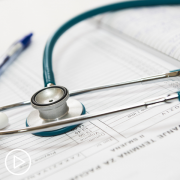
|
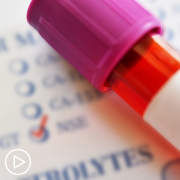
|
Transcript:
Katherine:
I understand that researchers have been looking into whether the COVID vaccination is as effective in people with CLL. What can you tell us about that? The research?
Dr. Barr:
Sure. Everyone knew this was going to be an important question. We’ve known for a long time that riff CLL responses to vaccines in general aren’t as good as some of the normal population. So, there’ve been a whole host of studies over the years where patients didn’t quite respond as well to flu vaccines or pneumonia vaccines. Nonetheless, we typically recommend standard vaccinations, because there’s can be some degree of response. And our testing isn’t always perfect in terms of how well vaccines work.
So, when it typically, is felt to be a relatively safe procedure, is something we typically recommend.
More recently, we looked at studies on the shingles vaccine, and actually that works better than perhaps the flu shot, for example. Because patients probably were previously exposed to that virus earlier in life when they get vaccinated. So, recall response, which is a little bit easier for the immune system.
So, that brings us up to the COVID vaccines, which is obviously critically important ever on everyone’s mind. And the data’s still early. But what we’ve learned so, far is that, like what we might have predicted, our patients, the CLL patients don’t respond as well to the mRNA-based COVID vaccines.
So, in the media we saw, in the larger 20- and 40,000 patients studies that maybe, 95 percent of patients didn’t experience infection. It looks like in the general population, those vaccines work very well. In a cohort of 160, some CLL patients who are vaccinated early on in Israel, it looked like maybe about 40 percent of patients responded.
For the patients who hadn’t previously been treated but had measurable CLL, maybe about half of patients responded adequately in terms of generating antibodies. So, kind of a flip of a coin. For patients who have been treated and were in remission for more than a year, we’ll say the responses were better, maybe 80 percent or so.
For patients who are on active treatment, even our novel treatments, like the BTK inhibitors or venetoclax (Venclexta), the BCL-2 inhibitor, the responses were pretty poor, 18 or so percent.
So, you can see for patients with active disease, their responses are impaired. For those that are in remission, a little better. For those who are on active treatment, the antibody responses aren’t very good. So, I honestly think this is important information, but tell patients, don’t lose hope.
It’s still important to take the precautions. Some degree of wearing masks and social distancing. They will be better protected if their friends and family around them are vaccinated, and they still may respond to some degree. It’s not like the vaccines aren’t working at all. It’s just that the responses aren’t quite as good as the general population. So, again, another long-winded answer, but hopefully that helps patients understand some of the limitations in vaccinations.
But also that generally things are getting safer in that they still can venture out in society, but still have to take some precautions.

